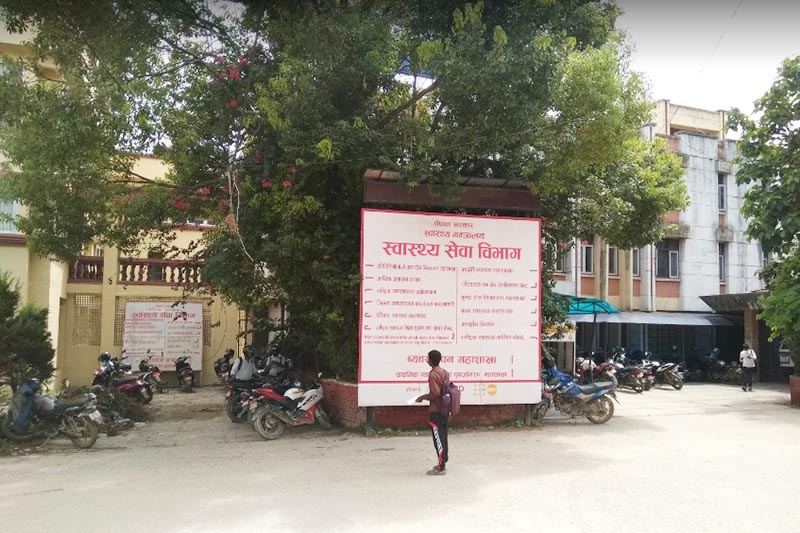Country facing double whammy of dengue and coronavirus
Kathmandu, May 6
At a time when the country is facing a hard time containing the spread of coronavirus, many cases of dengue have been reported from various districts across the country.
According to Epidemiology and Disease Control Division, under the Department of Health Services, a total of 53 cases of dengue have been reported in 21 districts across the country since January this year.
Rupandehi has reported 14 cases while Kathmandu valley has reported eight cases of the mosquito-borne illness. Meanwhile, five cases have been reported from Myagdi, four from Kaski and three cases each have been reported in Kapilvastu and Morang.
“This is a season for the mosquito to breed. The rainfall has given them the environment to lay eggs. When rainwater collects in tyres, cans, bottles, or any utensils, the mosquitoes lay eggs,” said Dr Prakash Shah, chief of Vector-Borne Disease Control Section at EDCD.
According to the EDCD, 14,662 people tested positive for dengue and six people lost their lives between July 17 and November 4 in 2019. The disease had spread in 67 districts across the country.
“As we had a large number of cases last year, eggs of the dengue causing mosquitoes are still there in our locality and when they find favourable environment they hatch,” said Dr Shah.
“Dharan and Chitwan were most affected last year. There are high chances of dengue outbreak in these areas this year too,” added Dr Shah. The dengue causing adult female Aedes Aegypti mosquito lays eggs on the wet surface of any container above the waterline. It generally lays 100 to 200 eggs at a time.
“These eggs are hardy and stick to the walls of the container. They can survive dry conditions for up to a year. Once the eggs find favourable humidity, temperature and water, they develop into larvae. The eggs that didn’t hatch last year can hatch now,” said Ishan Gautam, associate professor of entomology, Natural History Museum, Tribhuvan University.
There should be proper management of waste to prevent dengue spread, experts say. “The country is undergoing double whammy of coronavirus and dengue. We need to take precautionary measures against both the diseases. As people are staying at home because of the current lockdown, they should clean the surroundings and destroy areas that favour mosquito breeding,” said Gautam.
“Guidelines for the prevention of dengue have been provided to the local levels across the country. We need to test both for COVID-19 and dengue if the people suffer from fever,” said Uttam Raj Pyakurel, vector-borne inspector at EDCD. To help prevent dengue, people must clean their surroundings; wear full sleeved clothes, use mosquito repellents and nets.
“People should wear light coloured dresses such as white and sky blue as the mosquito that causes dengue doesn’t like reflective surfaces,” added Gautam.
A version of this article appears in e-paper on May 7, 2020, of The Himalayan Times.






